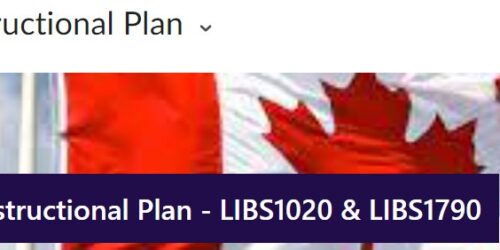Pre-Assessments in Lesson Planning
Wondering what students already know about a topic and how this informs our lesson planning? This post will provide a short explanation as to why pre-assessments are important in lesson planning and examples you can try with your students.
Pre-Assessments are included in lesson planning for several reasons, these include guiding your lesson in finding out what students know about topic, and from a learner’s perspective, facilitates the learner’s ability to recall and review prior knowledge.
According to the BOPPPS model in lesson planning, the pre-assessment task formally or informally answers the question: “What does the learner already know about the subject and outcome of the lesson?” (ISW Network, 2021).
Why a pre-assessment?
- Understanding Prior Knowledge:
Pre-assessment allows us to gauge students’ existing knowledge, skills, and misconceptions related to the upcoming lesson. For example, in a nursing class, a pre-assessment pre-quiz (e.g. Mentimeter) could reveal that some students already understand a newborn’s APGAR score, while others may struggle with the concept.
2. Tailoring Instruction:
Once we’ve conducted a pre-assessment, we can tailor our teaching to meet diverse student needs. For example, in an economics course, identifying students’ prior understanding of supply and demand can help customize explanations during lectures. Students could create a group image/graph of a common supply and demand schedule and this will show us what they already know and how much explanation is needed.
- Addressing Gaps and Misconceptions:
Pre-assessment also reveals gaps or misconceptions, enabling us to clarify concepts early on. For example, in a literature class, discovering that students confuse metaphors with similes can prompt us to include explicit examples of each for clarification. Students could complete a card sorting activity where they have to classify examples of metaphors or similes into the appropriate category.
- Promoting Active Learning:
Pre-assessment engages students from the beginning, making them active participants in their learning journey. For example, in a Liberal Studies pop culture course, students could do a think-pair-share of their favorite film.
Further examples of Pre-Assessments:
- Entry Ticket: Post a problem, question or prompt on the board or in the slides and have students write in the chat, on a sticky note or Mentimeter (open answer) response.
- Concept Map/Brainstorm: students work on their own or in a group and write down everything they know about a topic. For example, in a psychology course, students can map out the various theories of their personality.
- KWL: This is a graphic organizer that is separated into three categories: What I know (K), What I want to know (W) and what I learned (L). Students start with write in the first two columns before the lesson begins and the final column can be used at the end of the lesson for formative assessment.
- One Minute Sentence: students write one sentence to summarize what they know about a topic/concept. This could be done on their own or on a Padlet or Mentimeter.
- Graphic Organizers: Venn diagrams, comparisons, character maps, and Frayer model are all different examples of graphic organizers to help students draw on their prior knowledge of a topic and connect it with what they are learning.
- 3-2-1: Students list 3 things they know about the topic, 2 things they would like to know and 1 question they have about the topic.
References:
BOPPPS Lesson Planning Poster: https://tlconestoga.ca/downloads/
Instructional Skills Workshop. (2021). ISW handbook. https://www.iswnetwork.ca/login/my-resources/
Stoutenburg, L. (2023). Considerations for course planning. https://tlconestoga.ca/considerations-for-course-planning/
Teacher ToolKit: https://www.theteachertoolkit.com/index.php/tool/all-tools
University of Saskatchewan (2020). Instructional support: BOPPPS model pre-assessment. https://libguides.usask.ca/c.php?g=696596&p=4941311



